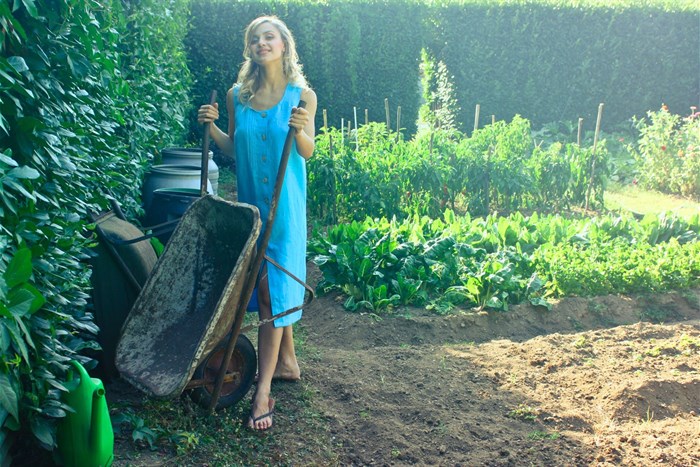However, along with the challenges we have faced, lies the opportunity for new perspectives to emerge. Closed-looped living offers us the chance to take control of our own needs like never- before and leave us happier and healthier in the process. Self-sufficiency doesn’t have to be all or nothing; even the smallest steps can make a big difference. If you’re not already doing some (or all) of these things, you can start today.

“Positive, healthy habits and changes can come out of this Covid-19 experience,” says entrepreneur and mother Robyn Smith, founder of Faithful to Nature online retailer. “Continuing to exercise, cultivating good practices and maintaining some semblance of a routine is crucial during these tumultuous times. These are just some tips to self-sufficiency; and a whole new way to stay motivated and connected, in the comfort of home,” she continues.
Eating well, exercising regularly, drinking water and getting enough sleep are proven ways to improve your wellbeing. More than ever, taking control of your own health is important. The more steps you take to prioritise your physical health, the less reliant you could become on doctor’s visits, medication and other health care support. Better health also means that it is easier to care for yourself in stressful situations too. A stronger immune system, bones and muscles along with decrease of anxiety and depression are just a few of the immediate and long-term positive effects that exercise and eating well can have.
Have the freshest leaves at your fingertips by growing them on your kitchen windowsills. If you think you need to be a skilled gardener to grow your own salad crops, winter soup or culinary herb, relax! It can be done with little effort, on a windowsill in your kitchen. It is not all about the harvest either – just planting and caring for your mini farm can be a joy. Choose cherry tomatoes, lettuce, spinach or make it a herb garden. Basil, rosemary, thyme, oregano, coriander and sage if your window is exposed to at least five hours of direct sun. If exposure to the sun is less than this, prefer parsley, fennel, chives, and mint. These all-time favourite herbs are the easiest to grow.
Try a zero-waste approach to tea drinking: collect and infuse your own mint leaves, chamomile flower, rosemary and sage. Leaves can be harvested fresh from the plant or dried. It’s simpler than it sounds. Prepare leaves for drying, wash them and shake off any excess moisture. Tie a handful of stems together and, with the leaves pointing downwards, hang in a cool dry spot in your home or garage. You’ll be ready to brew your very own, truly homemade tea when the leaves are dried sufficiently and crumble easily.
Bulk buying, batch cooking and growing your own creates food excesses that can be hard to properly preserve, but a bartering economy is a great way to turn these inevitable extras into currency and an excellent way to become more communal with your neighbours. Share excess food - cooked, uncooked, or grown in your garden - with friends, family, co-workers, and neighbours adhering to Covid health and safety protocols, of course.
If the thought of a living compost bin makes you squeamish, consider the benefits. Organic waste, such as food waste, makes up 25 to 50% of what people throw away, and when it decomposes in a landfill, it releases methane gas, a potent greenhouse gas. Not to mention, that South Africa’s landfills are on the brink of reaching capacity. So, this is an easy way to turn everyday scraps into garden gold and help reduce waste. A simple composting bin can hold a day or two's worth of kitchen waste and food debris, there are models to pop on your kitchen counter or under your sink. Take note that there will not be any actual composting in this bin. Instead, think of it as a convenient, odour-free way to house scraps and raw materials until you can add them to your outdoor composter or full-sized bin. Composting is actively changing your food scraps and your organic matter into something added to tree beds or outdoor plants.